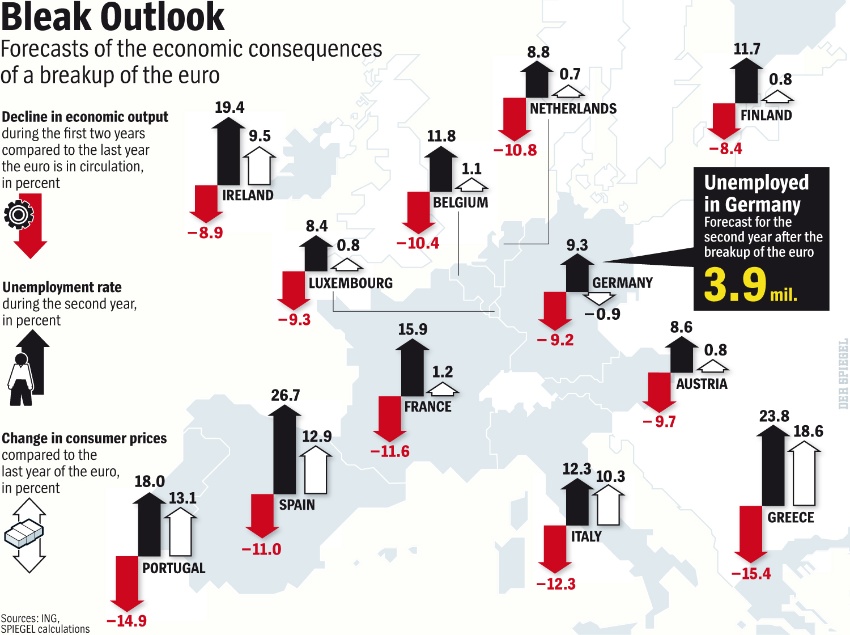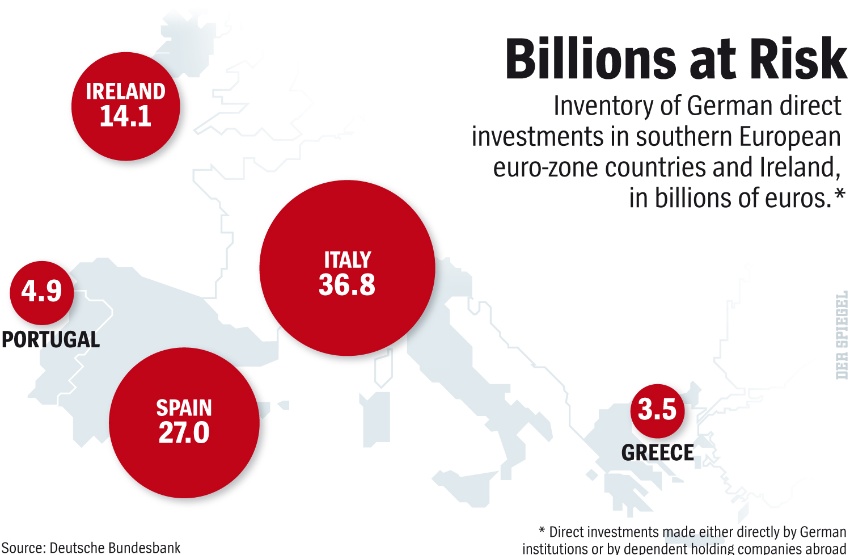Having been “protected” from the outcomes of their own economic decisions and given an EU bailout instead, Ireland seems to have become dependent on the largesse of others and incapable of working through their own problems toward their own prosperity.
Here’s what’s going on now, as described by Christoph Pauly of Spiegel Online International [emphasis added].
Ireland’s demands are very precise—and could be costly for the Germans. At stake are the €31 billion that the country received from the system of European central banks to save two crisis-ridden Irish financial institutions in 2010 [Note: this is the original bailout]. The country is expected to pay this money back in installments over the next 10 years.


